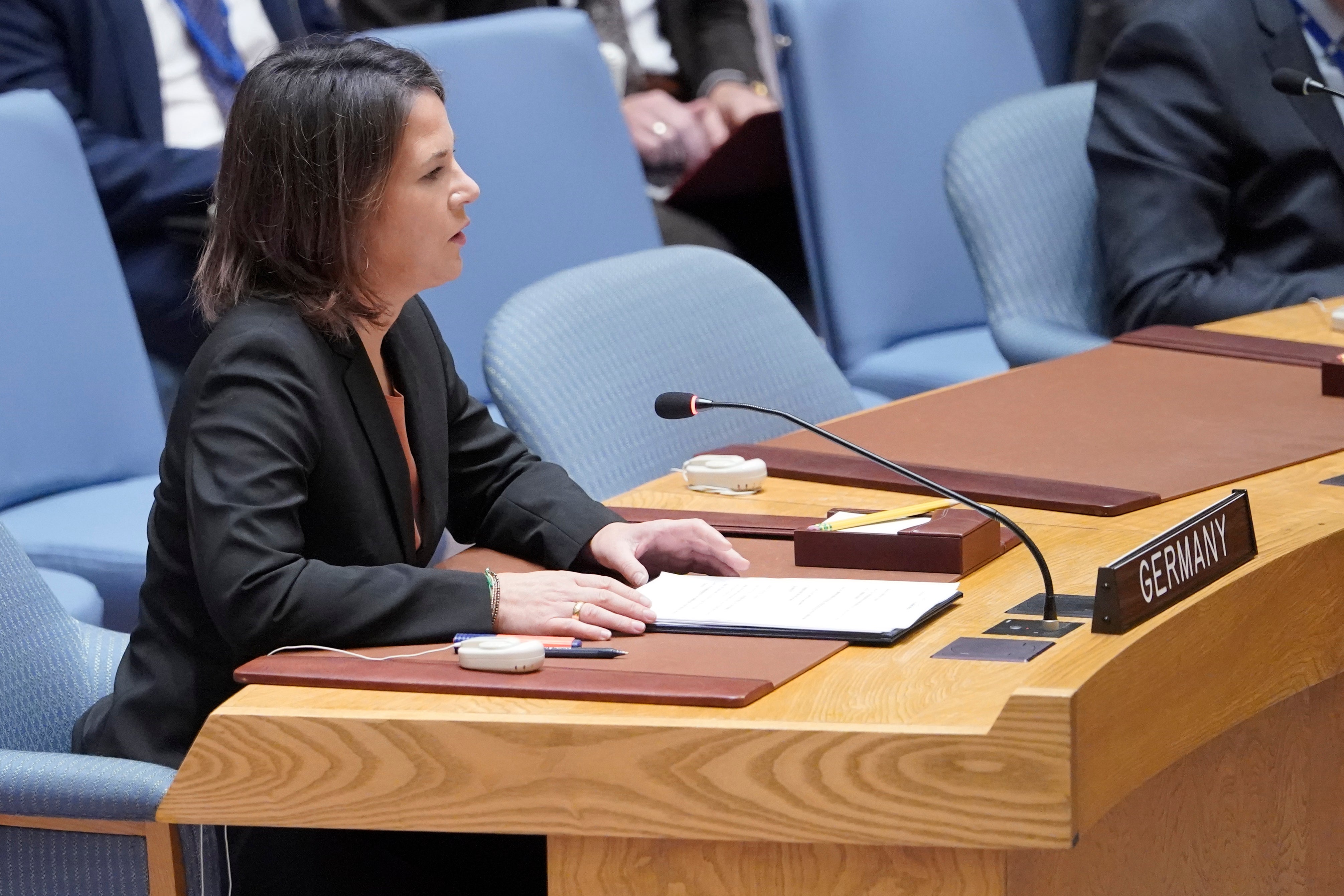Poland demands $1.3 trillion in war damages from Germany
Poland's foreign minister has signed an official note to Germany requesting some $1.3 trillion in reparations for the damage incurred by occupying Nazi Germans during World War II

Your support helps us to tell the story
From reproductive rights to climate change to Big Tech, The Independent is on the ground when the story is developing. Whether it's investigating the financials of Elon Musk's pro-Trump PAC or producing our latest documentary, 'The A Word', which shines a light on the American women fighting for reproductive rights, we know how important it is to parse out the facts from the messaging.
At such a critical moment in US history, we need reporters on the ground. Your donation allows us to keep sending journalists to speak to both sides of the story.
The Independent is trusted by Americans across the entire political spectrum. And unlike many other quality news outlets, we choose not to lock Americans out of our reporting and analysis with paywalls. We believe quality journalism should be available to everyone, paid for by those who can afford it.
Your support makes all the difference.Poland’s foreign minister on Monday signed an official note to Germany requesting the payment of about $1.3 trillion in reparations for the damage incurred by occupying Nazi Germans during World War II.
Zbigniew Rau said the note will be handed to Germany’s Foreign Ministry. The signing comes on the eve of Rau’s meeting in Warsaw with German Foreign Minister Annalena Baerbock, who will attend a security conference.
Rau said the note expresses his view that the two sides should take action “without delay” to address the effects of Germany's 1939-45 occupation in a “lasting and complex, legally binding as well as material way.”
He said that would include German reparations as well as solving the issue of looted artworks, archives and bank deposits. He said Berlin should make efforts to inform German society about the “true” picture of the war and its disastrous effects on Poland.
Warsaw says that payment of reparations would strengthen bilateral relations through truth and justice and would close painful chapters from the past. Germany says the matter was closed decades ago.
Baerbock said in Berlin before departing for Poland that the two European neighbors and partners have a "responsibility to preserve the trust we have built together over the past 30 years.”
Baerbock stressed that “this includes that coming to terms with and remembering the immeasurable suffering that Germany brought upon the people of Poland."
"There cannot and will not be a line drawn here,” Baerbock said.
Poland’s right-wing government argues that the country hasn't been fully compensated by neighboring Germany, which is now one of its major partners within the European Union.
On the war’s 83rd anniversary, Sept. 1, Poland’s government presented an extensive report on the damages, estimating it at the $1.3 trillion figure.
Poland’s government rejects a 1953 declaration by the country’s then communist leaders, under pressure from the Soviet Union, that Poland wouldn't make any further claims on Germany.
Germany argues compensation was paid to Eastern Bloc nations in the years after the war, while territories that Poland lost in the east as borders were redrawn were compensated with some of Germany’s prewar lands. Berlin calls the matter closed. It was Moscow that decided Poland would receive only a small fraction of the compensation.
In the 1990s Germany paid one-time compensation to former inmates of Nazi concentration camps and to victims of forced labor, including many Poles.
Despite good bilateral relations, Poland's most powerful politician, Jaroslaw Kaczynski, has recently made increasingly hostile remarks about Germany, recalling its wartime guilt and alleging that it is dominating the European Union.
Critics see that as tactics aimed at rallying backing ahead of general elections scheduled next fall. Opinion polls suggest the ruling Law and Justice party and its allies will lose the narrow majority that now allows them to pass legislation without negotiating with other parties.
Senate Speaker Tomasz Grodzki, a member of the opposition, said anti-German rhetoric was shaping up to be the ruling party's mantra for the upcoming election — that voting against the ruling party was voting against Poland's interests.
“This is evident nonsense; it's untrue. It's a desperate attempt at defense against surveys that show falling support," Grodzki said.
Around 6 million of Poland’s citizens, including 3 million Jews, were killed in the war. Some of them were victims of the Soviet Red Army that invaded from the east.
___
Kirsten Grieshaber in Berlin contributed to this report.